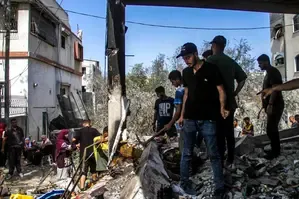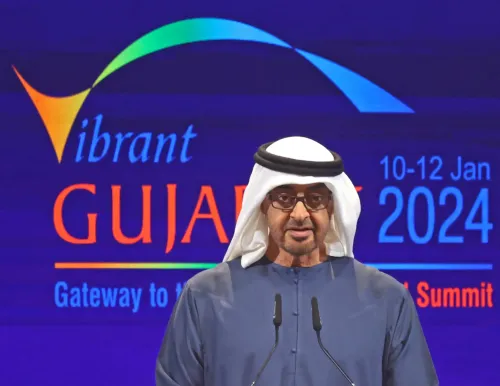Is the Lack of Essentials in Gaza Causing a Surge in Preventable Diseases?

Synopsis
Key Takeaways
- 19,000 cases of acute watery diarrhea reported.
- Escalating violence affecting civilians daily.
- Need for clean water and sanitation highlighted.
- WHO delivered vital medical supplies recently.
- OCHA emphasizes the importance of unhindered humanitarian access.
United Nations, June 27 (NationPress) UN humanitarians reported that their partners providing health assistance in Gaza have noted an alarming increase in preventable diseases due to the absence of clean water, sanitation, and fuel. The UN Office for the Coordination of Humanitarian Affairs (OCHA) indicated that over the past two weeks, more than 19,000 cases of acute watery diarrhea have been documented, along with over 200 cases each of acute jaundice syndrome and bloody diarrhea, as reported by Xinhua news agency.
The humanitarian workers stated, "These outbreaks are directly tied to the scarcity of clean water and sanitation in Gaza, highlighting the immediate need for fuel, medical supplies, and water, sanitation, and hygiene items to avert further deterioration of the public health system."
Additionally, there was another mass casualty incident at Al Aqsa Hospital following an airstrike in Deir al-Balah, where more than 20 individuals were reported dead and 70 others injured. Some of the injured had to be transferred to Nasser Medical Complex and two other healthcare facilities.
OCHA stated, "Civilians in Gaza face daily fatalities or injuries, whether from Israeli airstrikes, shelling, or while searching for food to feed their families. These tragic events should not be deemed normal and must cease immediately."
On a slightly brighter note, the World Health Organization (WHO) recently reported the delivery of its first medical supplies to Gaza since March 2, when Israel enforced a complete blockade on the region. Nine trucks loaded with essential medical supplies, 2,000 units of blood, and 1,500 units of plasma were transported from the Kerem Shalom/Karem Abu Salem border crossing.
The WHO mentioned that these supplies would be distributed to priority hospitals, with blood and plasma sent to the cold storage facilities at Nasser Medical Complex in Khan Younis, catering to hospitals facing critical shortages amid a rising tide of injuries, many stemming from incidents at non-UN, militarized food distribution points operated by the US.
However, the WHO emphasized that this shipment of essential medical supplies is merely a drop in the ocean.
OCHA highlighted the necessity of increasing the inflow of humanitarian and essential commercial goods into Gaza through multiple crossings and routes, facilitating their safe distribution throughout the region to meet humanitarian needs and curb looting.
On Wednesday, six out of 17 attempts to coordinate humanitarian actions inside Gaza were outright rejected by Israeli authorities. These planned UN missions included trucking water and repairing roads. Nine other coordination efforts, including the removal of solid waste and cargo collection from crossings, were allowed by Israeli authorities, while two additional attempts were not made.
OCHA stated, "The ongoing limitations on humanitarian access severely compromise life-saving operations."
Furthermore, OCHA expressed grave concern over escalating violence and Israeli settler assaults against Palestinians in the West Bank, documenting an incident where three Palestinians were killed and several others injured when hundreds of settlers, some armed and accompanied by Israeli forces, invaded the village of Kafr Malik, setting fire to homes. The Palestinian Central Bureau of Statistics in the Ramallah governorate indicated that Kafr Malik has a population exceeding 3,000.
In another attack on the same day, around 20 settlers set fire to agricultural land in the village of Asira al Qibliya in the Nablus governorate.
OCHA stated, "Civilians continue to suffer the consequences of this prolonged Israeli occupation." The office reiterated its call for the protection of civilians and humanitarian workers, adherence to international law, and unrestricted humanitarian access.










